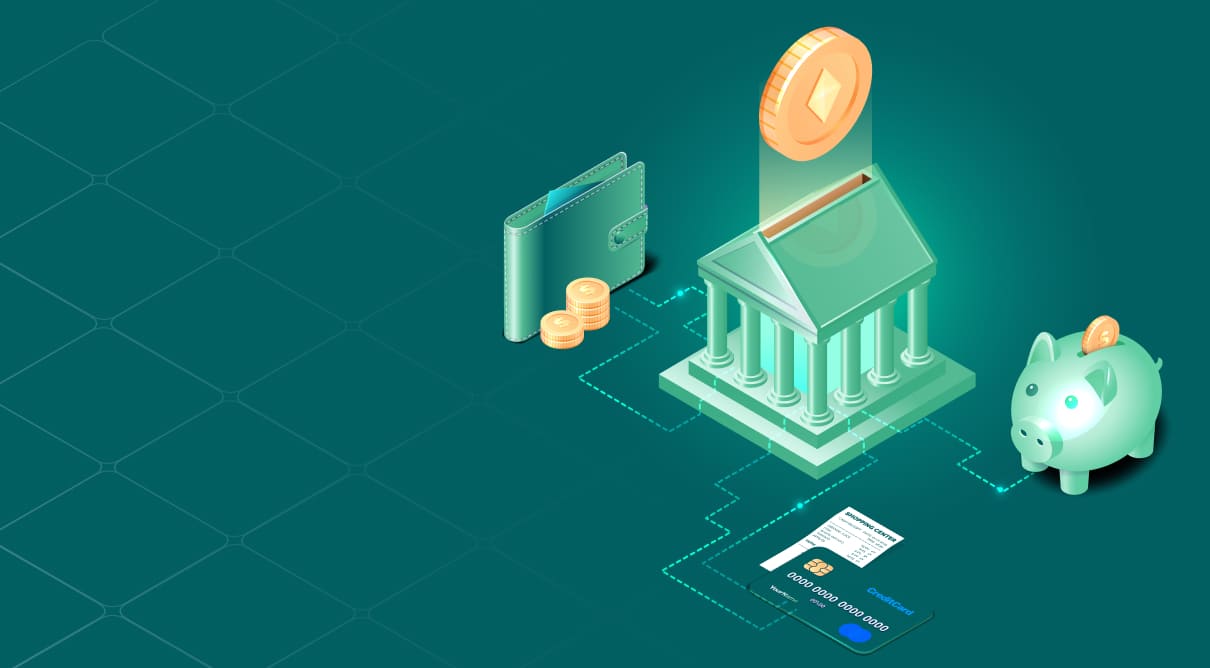Is 2024 the year of Generative AI in banking?

In the last few years, the use of Generative AI in banking has seen remarkable growth.
Before 2020, only 5% of financial institutions had begun exploring its potential.
Fast forward to 2022, and the adoption rate has skyrocketed nearly fourfold, according to a Cornerstone Advisors study.

The consumer perspective: Embracing AI in banking
Customers are not just warming up to Generative AI; they’re actively engaging with it.
A significant majority have interacted with AI-powered services at least once, and their feedback is overwhelmingly positive.
This enthusiasm from customers underscores the effectiveness of Generative AI in enhancing the banking experience, making services more accessible, and responses quicker.

As an example, Bank of America’s Erica leverages AI to provide personalized financial advice, showcasing the potential of digital assistants in banking.
By analyzing users’ financial behaviors, Erica offers insights and recommendations, elevating the standard for digital banking services.

The use cases for Generative AI in banking stretch far beyond consumer-facing applications.
Banks and financial institutions are experimenting with this technology to navigate regulatory compliance, quickly access important information and identify fraud.
Regulatory compliance
When federal regulators introduced 1,089 pages of new capital regulations to the US banking sector, Citigroup meticulously analyzed the document using generative AI.
The bank’s risk and compliance department employed this technology to evaluate how these rules would affect the bank’s capital reserves required for loss protection.
Through generative AI, the complex proposal was broken down into manageable sections, and essential insights were generated. These findings were then shared with the bank’s outgoing treasurer, Mike Verdeschi.
Fraud prevention
Generative AI enhances chatbots’ ability to learn from previous incidents of fraud and to keep an eye on transactional activities for any signs of fraudulent behavior. When it detects something out of the ordinary, it swiftly notifies customers.
Here are ways in which Generative AI can spot fraud:
- It observes user actions, including their location, the devices they use, and their operating systems.
- It enforces extra layers of verification like security queries and password checks.
- It examines established transaction patterns and looks out for any unusual changes.
This year, payments giant Mastercard has developed a unique generative AI model designed to enhance fraud detection across thousands of banks in its network.

This advanced model, dubbed Decision Intelligence Pro, equips banks with the capability to more accurately evaluate and respond to suspicious transactions in real time, effectively distinguishing between fraudulent and legitimate activities.
Ajay Bhalla, the president of Mastercard’s cyber and intelligence business unit, said that this cutting-edge AI solution is rooted in a proprietary recurrent neural network, a fundamental component of generative AI.
“We are using the transformer models which basically help get the power of generative AI,” Bhalla told CNBC. “It’s all built in house and we’ve got all kinds of data from the ecosystem. Because of the very nature of the business we are in, we see all the transaction data which comes to us from the ecosystem.”
Information retrieval
Morgan Stanley, a leader in wealth management, is empowering an internal chatbot with OpenAI’s GPT-4.
The chatbot will perform a comprehensive search of the wealth management content and unlock the cumulative knowledge of Morgan Stanley Wealth Management.
Previously, finding specific information within the knowledge library was time-consuming and difficult for advisors as the information was spread across many internal sites and mostly in PDF form. This initiative is expected to make the information more usable and actionable for the company.

“You essentially have the knowledge of the most knowledgeable person in Wealth Management—instantly. We believe that is a transformative capability for our company, “Jeff McMillan, Head of Analytics, Data & Innovation at Morgan Stanley Wealth Management, said.
Security concerns
Not all banks are keen on using technology like ChatGPT.
JPMorgan Chase, for instance, restricted the use of the chatbot by its staff, as reported by Bloomberg. The ban was driven by concerns over the potential for sensitive financial data shared with the platform.
Seraf is an AI-driven chatbot for financial institutions built with data governance in mind. Unlike ChatGPT and other tools on the market, Seraf makes sure your data stays yours, at all times. Book a demo to see it in action.
Hallucinations
When Microsoft demoed its Bing AI solution a year ago, the system generated responses that seemed plausible but were factually incorrect or completely unrelated to the context provided by the user.
In one of the demos, GPT, Bing AI made an effort to condense a Q3 2022 financial summary for Gap, and it got a lot wrong.
Specifically, while the original Gap report detailed a gross margin of 37.4% and an adjusted gross margin of 38.7% after excluding an impairment charge, Bing wrongly stated the gross margin as 37.4%, erroneously including the adjustment and impairment charges.
Making such mistakes on a large scale could lead to widespread misinformation, eroding trust in AI-generated summaries among users and stakeholders. It may also result in financial misinterpretations, potentially affecting investment decisions and market perceptions of a company’s financial health.
Final thoughts
Generative AI is making waves in the financial industry, with banks and FIs increasingly adopting this technology in their consumer and employee-facing initiatives.
Banks using this technology, such as Bank of America, Citigroup, and Mastercard, show how it can improve efficiency and security.
But while Generative AI in banking significantly enhances operations, security and the potential for AI hallucinations are critical concerns that banks and financial institutions need to address carefully.
Seraf is your go-to for any financial questions your team may have. Check it out.
Get valuable insights about AI and business automation
Rely on Seraf, AI that consolidates all your systems




